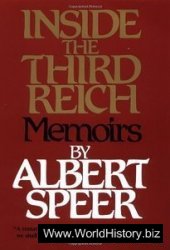1946
George F. Kennan, U. S. ambassador to the Soviet Union, writes the “Long Telegram” urging the United States to contain the Soviet Union’s current sphere of influence.
U. S. Congress creates the Indian Claims Commission to settle old disputes.
The Congress of Industrial Organizations (CIO) begins a drive to organize labor in the South known as “Operation Dixie” whose disappointing results signal the waning of organized labor’s power.
President Harry S. Truman issues Executive Order 9808, which creates the President’s Committee on Civil Rights.
The University of Pennsylvania introduces ENIAC, the world’s first wholly electronic digital computer.
The Employment Act of 1946 creates a three-member Council of Economic Advisors. The council’s purpose will be “to analyze and interpret economic developments.”
Dr. Benjamin Spock publishes The Common Sense Book of Baby and Child Care, which encourages a generation of parents to trust their instincts and be affectionate with their children.
William Levitt uses assembly-line techniques to construct the largest housing project in American history in Hempstead, Long Island.
The Center for Disease Control (originally known as the Communicable Disease Center) is established in Atlanta.
U. S. Congress passes the Atomic Energy Act, which establishes the Atomic Energy Commission (AEC) to explore, promote, and regulate the uses of nuclear energy.
The birthrate begins the 18-year postwar surge known as the baby boom.
1947
The Rio Pact promises reciprocal military assistance if Soviet intervention threatens any Western Hemisphere country.
Jackie Robinson joins the Brooklyn Dodgers and becomes the first black baseball player in the major leagues.
Overriding President Truman’s veto, U. S. Congress passes the Labor Management Relations Act of 1947, also known as the Taft-Hartley Act, which regulates the activities of organized labor.
The House Un-American Activities Committee (HUAC) accuses Hollywood film companies of infusing film scripts with communist propaganda and harboring communist sympathizers.
HUAC begins investigations to ferret out alleged communist infiltration of the film industry; the “Hollywood Ten” refuse to cooperate with proceedings.
The National Security Act of 1947 coordinates the formerly separate departments of the U. S. Army, Navy, and Air Force within a single, unified command called the National Military Establishment; the act also establishes the National Security Council and the Central Intelligence Agency (CIA).
The Truman Doctrine proclaims a U. S. commitment to help noncommunist countries resist Soviet expansion.
The Federal Employee Loyalty Program requires “loyalty investigations” for all civilian employees of the executive branch and all its job applicants to root out communist sympathizers.
The U. S. government sponsors Operation Bootstrap to industrialize Puerto Rico.
The play A Streetcar Named Desire, by Tennessee Williams, is produced.
The American Farm Bureau Federation advocates federal policies to allow agricultural prices to fluctuate according to supply and demand.
1948
The United States offers western European countries that reject communism the Marshall Plan, a massive program of aid for the devastated countries of Europe.
Twenty-nine North and South American nations sign the Charter of the Organization of American States, which founds an anticommunist federation of American countries, lays down its fundamental principles, and describes its structure.
Coach class air travel is introduced, making air travel more widely affordable.
The Mexican Labor Program extends the importation of Mexican farmworkers, or braceros, begun in 1941.
A group of Democrats who oppose Truman’s hard-line approach to communism form the Progressive Party, splitting the Democratic ticket by nominating Henry A. Wallace for president.
Segregationist Democrats walk out of the Democratic National Convention and form the States’ Rights, or “Dix-iecrat,” Party, endorsing Strom Thurmond for president.
In a close race, Republican Thomas E. Dewey loses the presidential election to incumbent Harry S. Truman.
Alfred C. Kinsey publishes Sexual Behavior in the Hwman Male to wide acclaim and condemnation, inviting discussion and further research on human sexuality.
Elijah Muhammad recruits Malcolm X to the Nation of Islam.
General Motors and the United Auto Workers negotiate a labor agreement that incorporates a cost-of-living adjustment (COLA) for union workers.
President Truman issues an order making the U. S. government an equal opportunity employer.
The United States begins the Berlin airlift to circumvent the Soviet Union’s blockade of Berlin.
Norman Mailer publishes his first novel, The Naked and the Dead.
Former diplomat Alger Hiss is accused of passing government documents to the Soviet Union; two years later he is convicted of perjury.
Palestine is partitioned under UN supervision to form the Jewish state of Israel; one day later, neighboring Arab armies attack Israel but are repelled.
William Shockley invents the transistor, which leads to the miniaturization of many electronic devices and appliances.
The United States, France, and Great Britain establish the Federal Republic of Germany.
Arthur Miller’s Pulitzer Prize-winning play, Death of a Salesman, is produced.
The first McDonald’s applies assembly-line methods to restaurant food preparation in San Bernardino, California.
Ending the Chinese Revolution, Mao Zedong’s Communist forces defeat the Guomindang (Nationalists) under Jiang Jieshi (Chiang Kai-shek), driving them to Taiwan.




 World History
World History









